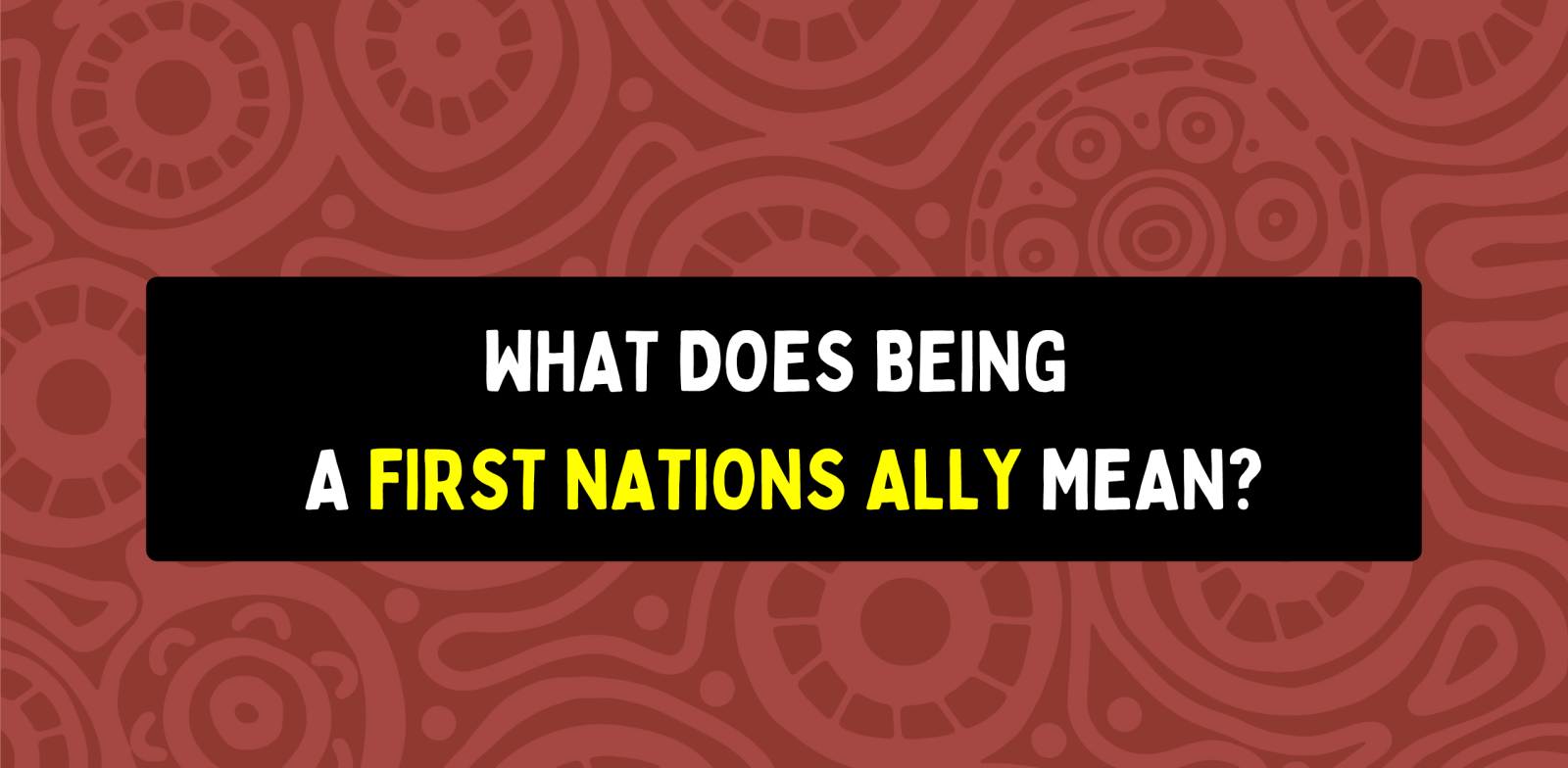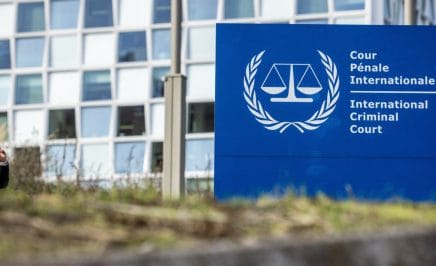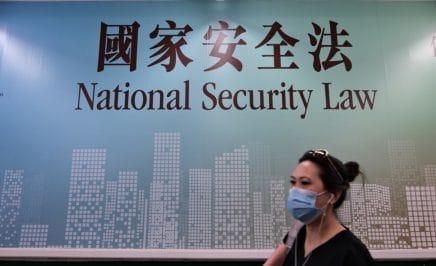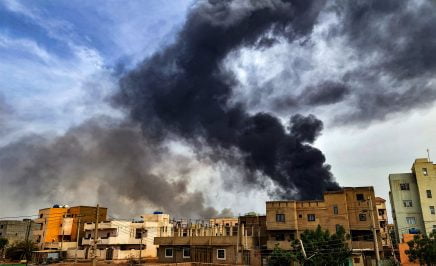Decades of evidence from healthcare to justice reinvestment show that First Nations Peoples flourish when they are involved in the decisions made about their lives. But today, First Nations Peoples make up only 3% of the population.
That is why allies are so important, standing in solidarity with First Nations Peoples to call for change.
What does being a First Nations Ally mean?
Someone who is an ally to First Nations communities finds opportunities to amplify the voices of First Nations Peoples and actively seeks information to learn from.
- Allies attend rallies, re-share content from First Nations social media accounts and find ways to help without waiting for mob to ask.
- Allies are willing to have tough conversations with friends and family to challenge discriminatory views.
- Allies walk the walk and they show up but never take the spotlight.
- Above all, they are kind, compassionate, and caring.
There’s no perfect beginning or end to allyship – you just have to be curious and willing to learn.
Some questions we can ask ourselves to start with are:
- How would I describe my understanding of First Nations histories?
- Do I know the First Nations place name and the Traditional Owners of the Country I’m on?
- Do I have any relationships with the local First Nations community?
Uncle Rodney Dillon, Proud Palawa Elder and Amnesty International Indigenous Rights Advisor says:
“Non-Indigenous people’s support and influence can be really, really important to make positive change. We need people who are willing to understand the past so these families have got a safer future. The people who put the wall up, I can understand why it’s there, but the people who pull it down – they’re the ones we need.”

“We need people who are willing to understand the past so these families have got a safer future. The people who put the wall up, I can understand why it’s there, but the people who pull it down – they’re the ones we need.”
Uncle Rodney Dillon, Proud Palawa Elder and Amnesty International Indigenous Rights Advisor
Our shared history
Learning from the past is how we reflect on who we are now and where we want to go. Truth-telling is a real opportunity for all of us to understand the real history of this country and is a key step towards reconciliation and healing.
Was Australia settled or invaded? Does it matter?
Settled implies a peaceful movement of people and sanitises the true history of Australia – that Aboriginal and Torres Strait Islander people were subject to horrific violence by the British, whose goal was to eliminate the local population and take control of the land.
In Lutruwita (Tasmania), the British engaged in genocidal policies and practices – any settlers who killed Indigenous people had immunity from legal consequences. Solicitor-General Alfred Stephen declared “then I say boldly and broadly exterminate!” Thousands of children were forcibly removed from their families – what we now know as the Stolen Generations.
This history is sad but true and continues to affect lives today. The language we choose to use plays a big part in determining the overall narrative. Even without meaning to, avoiding words like ‘invasion’ contributes to the erasure of that history.
Kacey Teerman, proud Gomeroi woman and Amnesty International Indigenous Rights Campaigner says:
“When people think of truthtelling, they think of atrocities – the Frontier Wars, Stolen Generations, massacres – which continue to have a significant effect on Indigenous People. But to me, truth-telling isn’t just about the sad things. There is so much positive history to celebrate. Indigenous People had trade routes, advanced farming techniques, and amazing inventions that were thousands of years ahead of their time. This is our shared history.”

“But to me, truth-telling isn’t just about the sad things. There is so much positive history to celebrate. Indigenous People had trade routes, advanced farming techniques, and amazing inventions that were thousands of years ahead of their time. This is our shared history.”
Kacey Teerman, proud Gomeroi woman and Amnesty International Indigenous Rights Campaigner
Indigenous Rights are Human Rights
As a First Nations Ally, you believe no one should ever be held back, targeted or disadvantaged in any way because of their background. You believe Australia can and should be a just and inclusive country that values equality for all.
Human rights are universal, but right now in Australia, they are not equally upheld. For hundreds of years, systems brought here through colonisation have led to social and economic disadvantages for First Nations People. Closing the Gap research has highlighted serious inequalities, like:
- Indigenous babies are twice as likely to die in the first 28 days since birth, compared to non-Indigenous babies
- Indigenous People have a significantly shorter life expectancy compared to non-Indigenous people
- The rate of suicide among Indigenous People is twice the rate of non-Indigenous People.
Read closingthegap.gov.au/national-agreement/targets
Kacey Teerman, proud Gomeroi woman and Amnesty International Indigenous Rights Campaigner says:
“My whole life I have seen the consequences of laws and policies that disproportionately affect First Nations People. For many, it is across every facet of our lives: education, healthcare, housing and through the legal system.”
It all starts with you!
Allyship starts with accepting that our country’s history means that everything – what we are taught, the laws we follow, the media we consume – has been shaped by colonisation.
It means challenging our concepts and beliefs and the way we see the world. Sometimes it means even questioning things you’ve learned from friends and loved ones. ‘Unlearning’ is a lifelong process and requires self-reflection and listening.
You can ask questions like:
- Growing up, what representations of First Nations People did you see around your community, your workplace, on TV?
- In how many languages can you say ‘hello’? Are any of them First Nations languages?
If this process makes you feel uncomfortable, know that’s normal. It’s part of the process and unavoidable. Take your time and be kind to yourself, but don’t be discouraged. Being curious and willing is an amazing first step.
Rach McPhail, Proud Gomeroi woman and Amnesty International Indigenous Rights Campaigner says:
“When I think of Allyship, I think it’s about uncovering unconscious biases, amplifying First Nations voices, and finding tangible ways to support First Nations communities.”

Amnesty International is a global movement of more than 10 million people who take injustice personally. We are campaigning for a world where human rights are enjoyed by all – and we can only do it with your support.
Act now or learn more about our Indigenous Justice campaigns.





